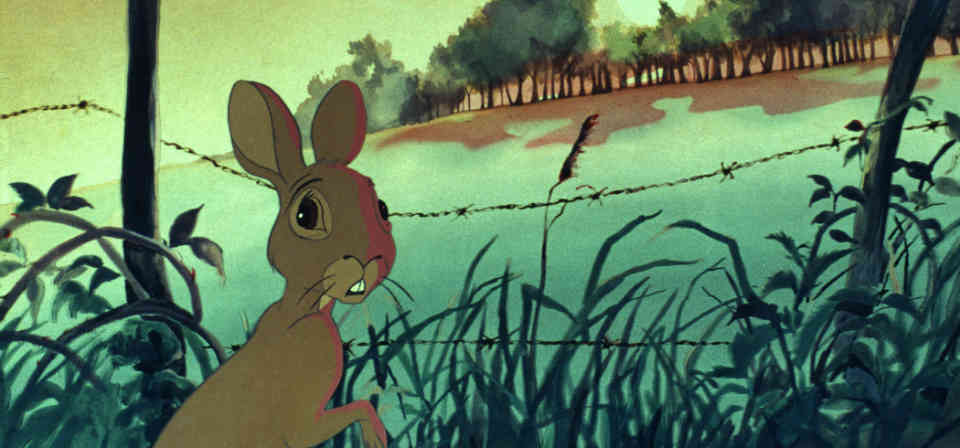← Back to Reviews
in
Those are the closing words from the prologue to this animated adventure film. Told like a parable, it tells us of the mythical circumstances that led to the current state of affairs in this animal world, most notably, why "poor" rabbits have the odds against them. But what the prologue establishes is that despite circumstances being against you, there are always ways to survive and live.
Watership Down follows a group of rabbits as they flee from human "advance" in order to establish a new warren. The group is led by Hazel (John Hurt) and his younger brother Fiver (Richard Briers), who foresees the destruction of their current warren, inspiring them to leave. In the way, they encounters numerous obstacles, from various animals trying to hunt them to other rabbits attempting to enslave them. But what the rabbits have in their favor is their cunning.
This is a film I didn't know much about other than it being animated and about rabbits. So I was surprised to see it was something a bit deeper than your usual animated fare. Intended or not, the story has clear parallelisms to the Bible, as well as other stories about heroic quests. This opening can be compared to the stories of Genesis (i.e. Adam? Cain?) while the bulk of the film also has vibes of Greek epics.
But beyond its symbolism, the film manages to be engaging and thrilling as you find yourself invested in the fate of this group of rabbits. For the 1970s, the animation is great, and the voice-over work is very effective. There are instances where the pace is a bit off and the story meanders a bit, especially as it transitions from the second to the third act, but nothing that detracts much from it all. These rabbits are still full of tricks.
Grade:
WATERSHIP DOWN
(1978, Rosen)
A film from the Criterion Collection whose number includes the #8 (#748)
-- recommended by @kgaard --

(1978, Rosen)
A film from the Criterion Collection whose number includes the #8 (#748)
-- recommended by @kgaard --

"All the world will be your enemy, Prince with a Thousand Enemies. And whenever they catch you, they will kill you. But first, they must catch you... digger, listener, runner. Prince with the swift warren. Be cunning and full of tricks... and your people will never be destroyed."
Those are the closing words from the prologue to this animated adventure film. Told like a parable, it tells us of the mythical circumstances that led to the current state of affairs in this animal world, most notably, why "poor" rabbits have the odds against them. But what the prologue establishes is that despite circumstances being against you, there are always ways to survive and live.
Watership Down follows a group of rabbits as they flee from human "advance" in order to establish a new warren. The group is led by Hazel (John Hurt) and his younger brother Fiver (Richard Briers), who foresees the destruction of their current warren, inspiring them to leave. In the way, they encounters numerous obstacles, from various animals trying to hunt them to other rabbits attempting to enslave them. But what the rabbits have in their favor is their cunning.
This is a film I didn't know much about other than it being animated and about rabbits. So I was surprised to see it was something a bit deeper than your usual animated fare. Intended or not, the story has clear parallelisms to the Bible, as well as other stories about heroic quests. This opening can be compared to the stories of Genesis (i.e. Adam? Cain?) while the bulk of the film also has vibes of Greek epics.
But beyond its symbolism, the film manages to be engaging and thrilling as you find yourself invested in the fate of this group of rabbits. For the 1970s, the animation is great, and the voice-over work is very effective. There are instances where the pace is a bit off and the story meanders a bit, especially as it transitions from the second to the third act, but nothing that detracts much from it all. These rabbits are still full of tricks.
Grade:
